
Introduction to Management Yongxiu Wang E-mail:wyx6666@126.com
Introduction to Management Yongxiu Wang E-mail: wyx6666@126.com
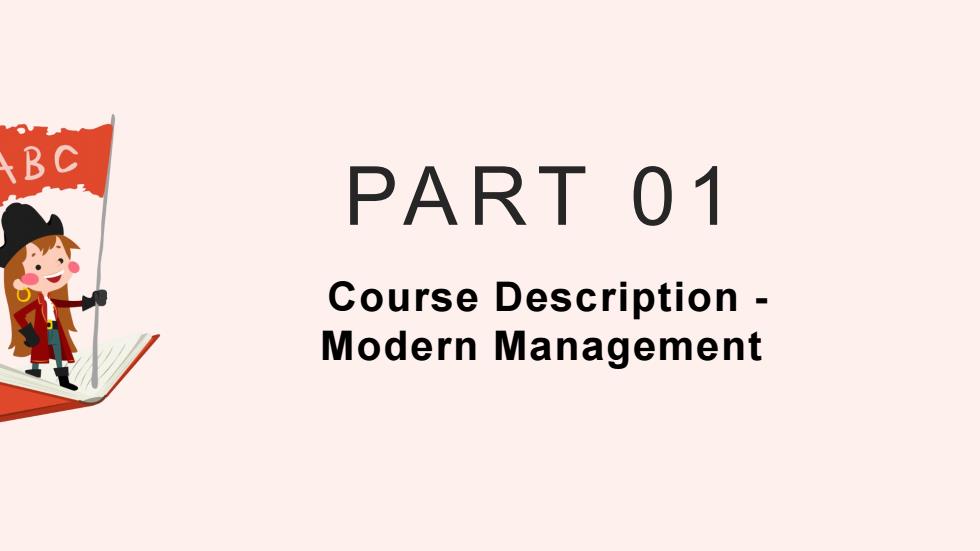
ABC PART 01 Course Description Modern Management
Course Description - Modern Management PART 01
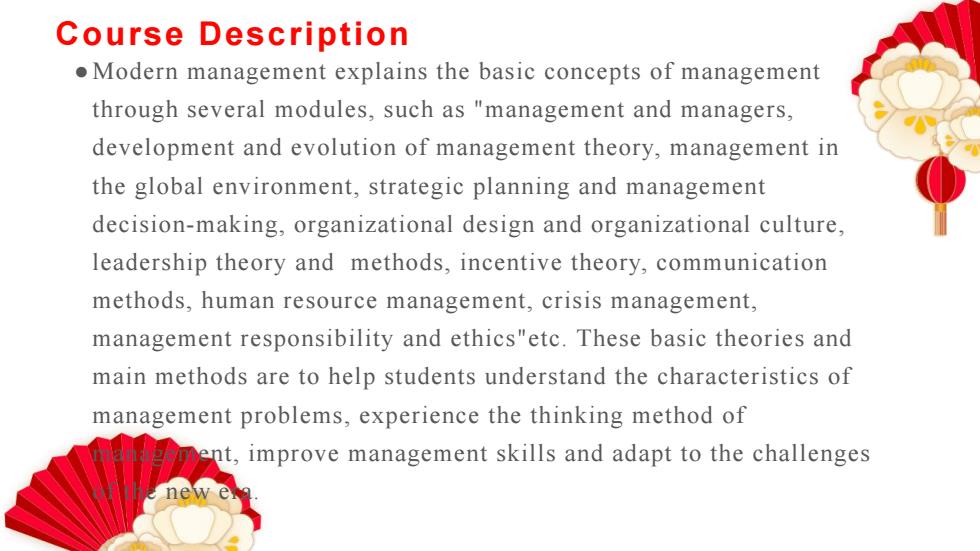
Course Description Modern management explains the basic concepts of management through several modules,such as "management and managers, development and evolution of management theory,management in the global environment,strategic planning and management decision-making,organizational design and organizational culture, leadership theory and methods,incentive theory,communication methods,human resource management,crisis management, management responsibility and ethics"etc.These basic theories and main methods are to help students understand the characteristics of management problems,experience the thinking method of ent,improve management skills and adapt to the challenges
Course Description ●Modern management explains the basic concepts of management through several modules, such as "management and managers, development and evolution of management theory, management in the global environment, strategic planning and management decision-making, organizational design and organizational culture, leadership theory and methods, incentive theory, communication methods, human resource management, crisis management, management responsibility and ethics"etc. These basic theories and main methods are to help students understand the characteristics of management problems, experience the thinking method of management, improve management skills and adapt to the challenges of the new era
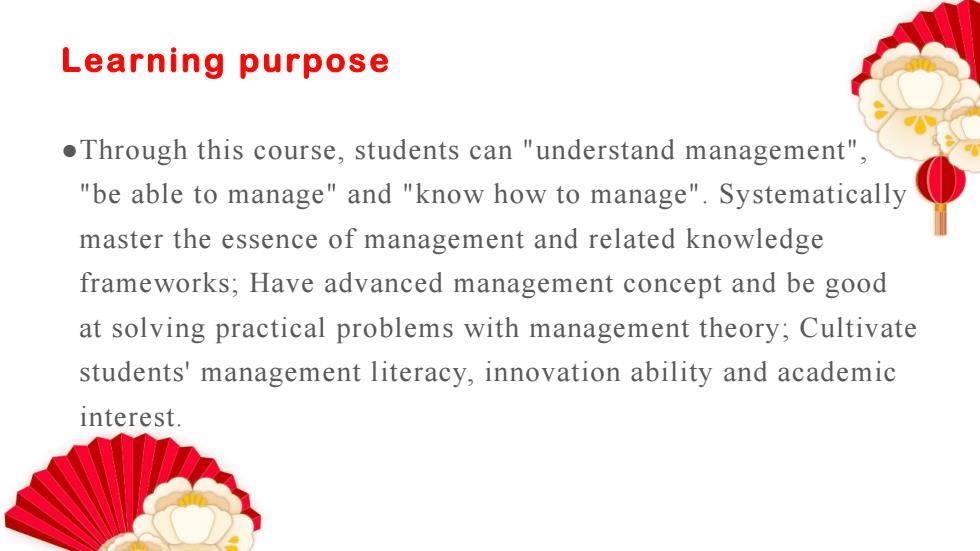
Learning purpose .Through this course,students can "understand management", "be able to manage"and "know how to manage".Systematically master the essence of management and related knowledge frameworks;Have advanced management concept and be good at solving practical problems with management theory;Cultivate students'management literacy,innovation ability and academic interest
Learning purpose ●Through this course, students can "understand management" , "be able to manage" and "know how to manage". Systematically master the essence of management and related knowledge frameworks; Have advanced management concept and be good at solving practical problems with management theory; Cultivate students' management literacy, innovation ability and academic interest
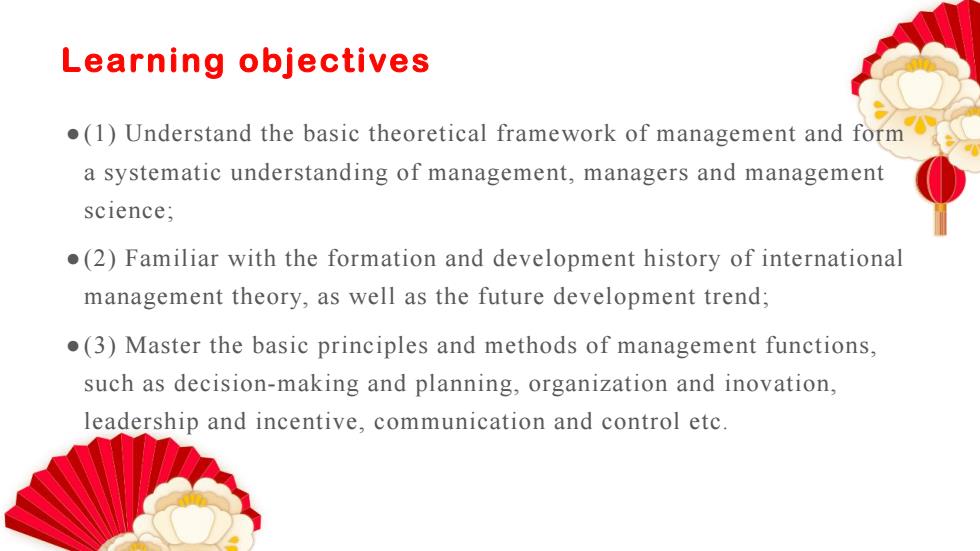
Learning objectives (1)Understand the basic theoretical framework of management and form a systematic understanding of management,managers and management science; (2)Familiar with the formation and development history of international management theory,as well as the future development trend; (3)Master the basic principles and methods of management functions, such as decision-making and planning,organization and inovation, leadership and incentive,communication and control etc
Learning objectives ●(1) Understand the basic theoretical framework of management and form a systematic understanding of management, managers and management science; ●(2) Familiar with the formation and development history of international management theory, as well as the future development trend; ●(3) Master the basic principles and methods of management functions, such as decision-making and planning, organization and inovation, leadership and incentive, communication and control etc
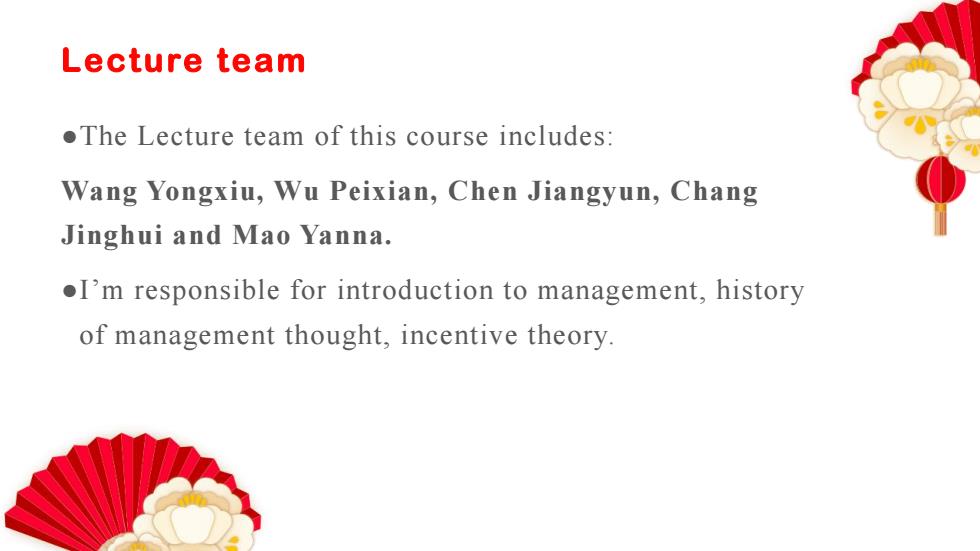
Lecture team .The Lecture team of this course includes: Wang Yongxiu,Wu Peixian,Chen Jiangyun,Chang Jinghui and Mao Yanna. oI'm responsible for introduction to management,history of management thought,incentive theory
Lecture team ●The Lecture team of this course includes: Wang Yongxiu, Wu Peixian, Chen Jiangyun, Chang Jinghui and Mao Yanna. ●I’m responsible for introduction to management, history of management thought, incentive theory

Examination and score .(1)participate in 20%of the class and complete the learning videos and material released by the course before the deadline .(2)Daily homework accounts for 40%,including online discussion(30%),unit test (30%)and homework (40%).Each chapter has 3-5 unit tests and 1-2 discussion questions;There are 2 homework questions in the course,which are evaluated by mutual evaluation.After submitting the homework,students need to participate in mutual evaluation.Everyone need to evaluate more than 5 other people's homework to get the average score of others'evaluation of their own homework.If they do not participate in the mutual evaluation,they can only get 60%of the homework score,and if they do not complete 5 mutual evaluations,they can only get 80%of the homework score. .(3)40%of the course report,and submit the report video and PPT according to the of course topic selection.The results of this course are obtained through e platform
Examination and score ● (1) participate in 20% of the class and complete the learning videos and materials released by the course before the deadline. ● (2) Daily homework accounts for 40%, including online discussion (30%), unit test (30%) and homework (40%). Each chapter has 3-5 unit tests and 1-2 discussion questions;There are 2 homework questions in the course, which are evaluated by mutual evaluation. After submitting the homework, students need to participate in mutual evaluation.Everyone need to evaluate more than 5 other people's homework to get the average score of others' evaluation of their own homework. If they do not participate in the mutual evaluation, they can only get 60% of the homework score, and if they do not complete 5 mutual evaluations, they can only get 80% of the homework score. ● (3) 40% of the course report, and submit the report video and PPT according to the requirements of course topic selection.The results of this course are obtained through the online learning platform
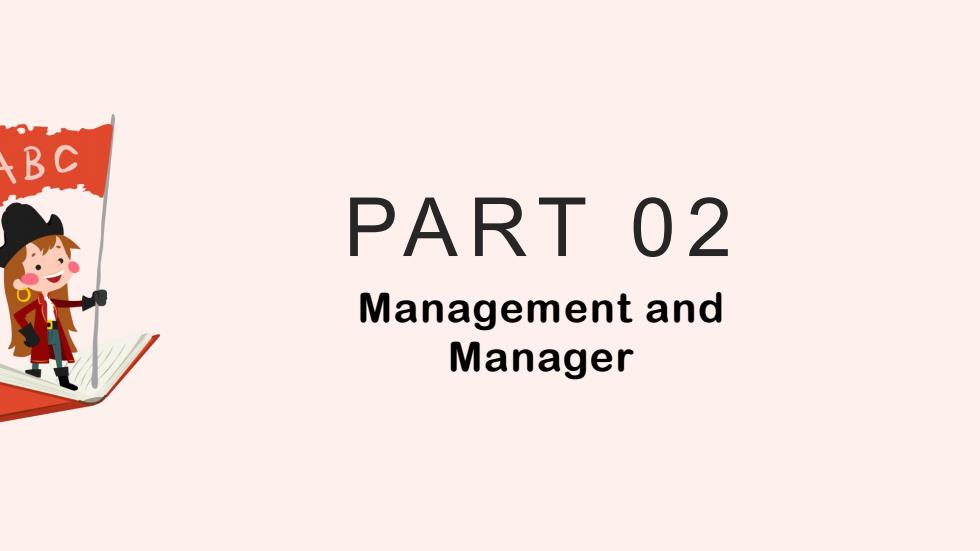
BC PART 02 Management and Manager
Management and Manager PART 02
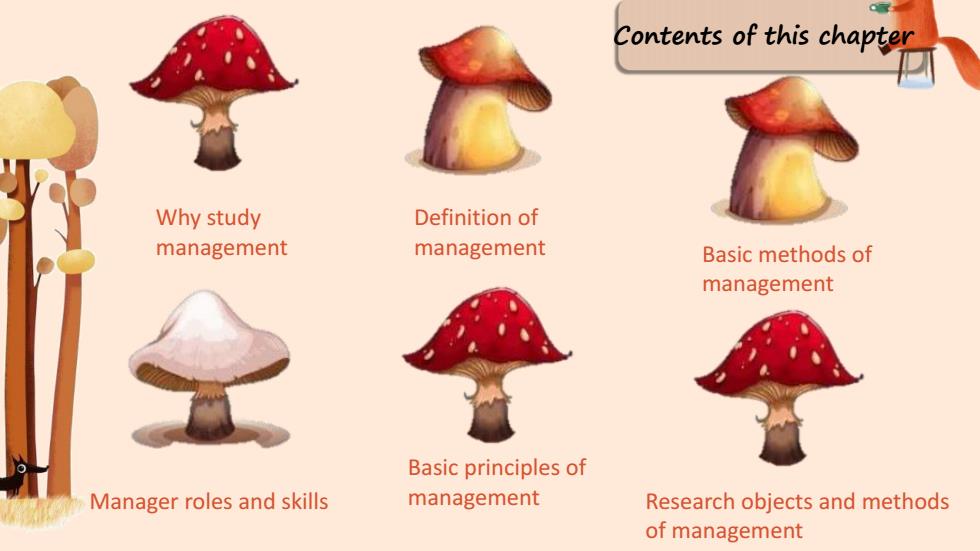
Contents of this chapter Why study Definition of management management Basic methods of management Basic principles of Manager roles and skills management Research objects and methods of management
Contents of this chapter Why study management Definition of management Manager roles and skills Basic principles of management Basic methods of management Research objects and methods of management
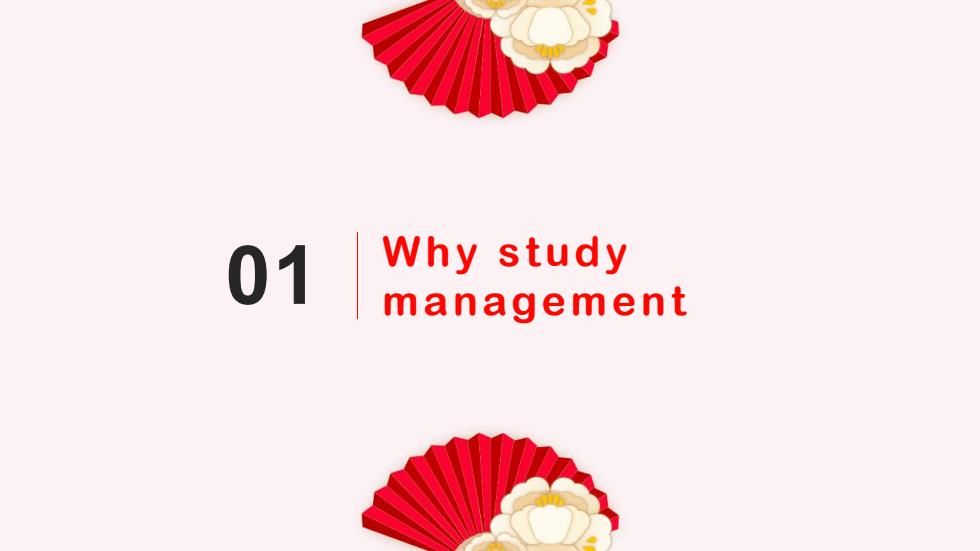
01 Why study management
01 Why study management